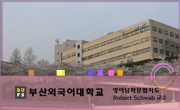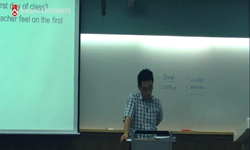This study explored how teachers and students in different countries discursively interact to build ``Classroom Science Knowledge`` (CSK) - the knowledge generate situatedly in the context of the science classroom. Data came from publicly released 8th...
http://chineseinput.net/에서 pinyin(병음)방식으로 중국어를 변환할 수 있습니다.
변환된 중국어를 복사하여 사용하시면 됩니다.
- 中文 을 입력하시려면 zhongwen을 입력하시고 space를누르시면됩니다.
- 北京 을 입력하시려면 beijing을 입력하시고 space를 누르시면 됩니다.

Understanding of Science Classrooms in Different Countries through the Analysis of Discourse Modes for Building “Classroom Science Knowledge” (CSK) = Understanding of Science Classrooms in Different Countries through the Analysis of Discourse Modes for Building “Classroom Science Knowledge” (CSK)
한글로보기https://www.riss.kr/link?id=A99678168
-
저자
( Phil Seok Oh ) ; ( Todd Campbell ) (University of Massachusetts Dartmouth)
- 발행기관
- 학술지명
- 권호사항
-
발행연도
2013
-
작성언어
Korean
- 주제어
-
KDC
374.4
-
등재정보
KCI등재
-
자료형태
학술저널
- 발행기관 URL
-
수록면
597-625(29쪽)
- 제공처
-
0
상세조회 -
0
다운로드
부가정보
다국어 초록 (Multilingual Abstract)
This study explored how teachers and students in different countries discursively interact to build ``Classroom Science Knowledge`` (CSK) - the knowledge generate situatedly in the context of the science classroom. Data came from publicly released 8th grade science classroom videos of five nations who participated in the Third TIMSS (Trend in International Mathematics and Science Study) video study. A total of ten video-recorded science lessons and their verbatim transcripts were selected and analyzed using a framework developed by the researchers of the study. It was revealed that a range of discourse modes were utilized and these modes were often sequentially connected to build CSK in the science classrooms. Although dominant discourse modes and their sequences varied among different lessons or different countries, the study identified three salient patterns of science classroom discourse: teacher-guided negotiation and the sequences of exploring - building on the shared and retrieving - elaborating. These patterns were found to be different form the discursive features commonly witnessed in the community of professional scientists and interpreted as implying the existence of unique epistemic cultures shared in science classrooms of different countries. Further studies are suggested to reveal characteristics of these epistemic cultures of science classrooms, as well as to confirm whether any cultural traits inherently shape the differences in science classroom discourse among different nations.
동일학술지(권/호) 다른 논문
-
- 한국과학교육학회
- ( Young Hee Lee )
- 2013
- KCI등재
-
- 한국과학교육학회
- ( Jeong Yoon Jang )
- 2013
- KCI등재
-
- 한국과학교육학회
- ( Hun Koog Jho )
- 2013
- KCI등재
-
The Development of Science Education Program Based on Culturally Responsive Teaching
- 한국과학교육학회
- ( Choong Duk Chung )
- 2013
- KCI등재




 ScienceON
ScienceON KISS
KISS





